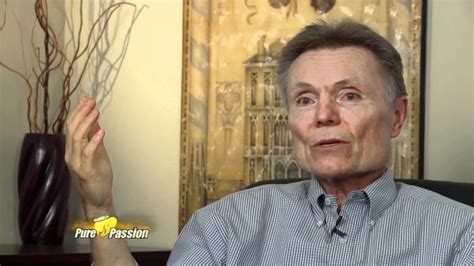A Quote by Sue Monk Kidd
You forgive what you can, when you can. That's all you can do.To forgive does not mean overlooking the offense and pretending it never happened. Forgiveness means releasing our rage and our need to retaliate, no longer dwelling on the offense, the offender, and the suffering, and rising to a higher love. It is an act of letting go so that we ourselves can go on.
Related Quotes
The very person you find it hardest to forgive is the one you need to let go of the most. Forgiveness means letting go. It has nothing to do with condoning behavior, it's just letting the whole thing go. We do not have to know how to forgive. All we need to do is be willing to forgive. The Universe will take care of the hows.
Forgiveness is an act of creation. You can choose from many ways to do it. You can forgive for now, forgive till then, forgive till the next time, forgive but give no more chances it’s a whole new game if there is another incident. You can give one more chance, give several more chances, give many chances, give chances only if. You can forgive part, all, or half of the offense. You can devise a blanket of forgiveness. You decide
Forgiveness does not mean that we suppress anger; forgiveness means that we have asked for a miracle: the ability to see through mistakes that someone has made to the truth that lies in all of our hearts. Forgiveness is not always easy. At times, it feels more painful than the wound we suffered, to forgive the one that inflicted it. And yet, there is no peace without forgiveness. Attack thoughts towards others are attack thoughts towards ourselves. The first step in forgiveness is the willingness to forgive.
The Risen Christ proclaimed not that we 'have to forgive,' but rather, that at last we CAN forgive-and thereby free ourselves from consuming bitterness and the offender from our binding condemnation. This process requires genuine human anger and grief, plus-and here is the awful cost of such freedom-a humble willingness to see the offender as God sees that person, in all his or her terrible brokenness and need for God's saving power. I would never tell another, 'You have to forgive.'
Forgiveness is a strange thing. It can sometimes be easier to forgive our enemies than our friends. It can be hardest of all to forgive people we love. Like all of life's important coping skills, the ability to forgive and the capacity to let go of resentments most likely take root very early in our lives.
To forgive the incessant provocations of daily life - to keep on forgiving the bossy mother-in-law, the bullying husband, the nagging wife, the selfish daughter, the deceitful son - how can we do it? Only, I think, by remembering where we stand, by meaning our words when we say in our prayers each night, “Forgive our trespasses as we forgive those who trespass against us.” We are offered forgiveness on no other terms. To refuse it is to refuse God’s mercy for ourselves. There is no hint of exceptions and God means what he says.
It's forgiveness that makes us what we are. Without forgiveness, our species would've annihilated itself in endless retributions. Without forgiveness, there would be no history. Without that hope, there would be no art, for every work of art is in some way an act of forgiveness. Without that dream, there would be no love, for every act of love is in some way a promise to forgive. We live on because we can love, and we love because we can forgive.
When we forgive someone, we do not forget the hurtful act, as if forgetting came along with the forgiveness package, the way strings come with a violin. Begin with the basics. If you forget, you will not forgive at all. You can never forgive people for things you have forgotten about. You need to forgive precisely because you have not forgotten what someone did; your memory keeps the pain alive long after the hurt has stopped. Remembering is the storage of pain. It is why you need to be healed in the first place.
Even as the angry vengeful thoughts boiled through me, I saw the sin of them. Jesus Christ had died for this man; was I going to ask for more? Lord Jesus, I prayed, forgive me and help me to forgive him....Jesus, I cannot forgive him. Give me your forgiveness....And so I discovered that it is not on our forgiveness any more than on our goodness that the world's healing hinges, but on His. When He tells us to love our enemies, He gives along with the command, the love itself.
I use my work as catharsis. That's often the best thing that we can do, is to allow ourselves to rage because it's so rare that we get to. We're told to forgive - I don't want to! I don't want to forgive my abuser! I don't care to and I don't like that assumption that forgiveness makes me a better person. It's not authentic to me, my feelings and what I need. But everyone has their own way.





































